Latest News
Israel launches ‘extensive strikes’ on Gaza with more than 100 reportedly killed
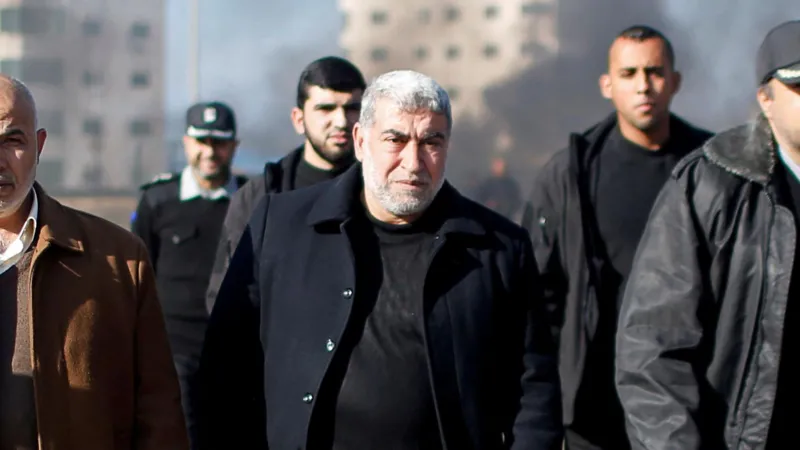
The Israeli military says it is carrying out “extensive strikes” in the Gaza Strip, with the Hamas-run health ministry reporting that at least 130 Palestinians have been killed.
The Israel Defense Forces (IDF) said it was targeting what it called “terror targets” belonging to Hamas.
Mahmoud Abu Wafah, the deputy interior minister in Gaza and the highest-ranking Hamas security official in the territory, has reportedly been killed in a strike.
This is the largest wave of airstrikes in Gaza since the ceasefire began on 19 January. Talks to extend the Gaza ceasefire have failed to reach an agreement.
Many people were having their pre-dawn meal, due to it being the holy month of Ramadan, when explosions started in Gaza, witnesses say.
More than 20 Israeli war planes flew over, they said. The planes then began to hit targets in Gaza City, Rafah and Khan Younis.
Israeli Prime Minister Benjamin Netanyahu and Defence Minister Israel Katz ordered the strikes on Tuesday morning, according to a statement from the PM’s office.
“This follows Hamas’s repeated refusal to release our hostages, as well as its rejection of all of the proposals it has received from US Presidential Envoy Steve Witkoff and from the mediators,” it said.
“Israel will, from now on, act against Hamas with increasing military strength,” it added.
The plan for the strikes “was presented by the IDF over the weekend and approved by the political leadership”, it said.
Hamas has responded furiously, accusing Israel of treachery for overturning the ceasefire agreement. It also says Israel is exposing the remaining Israeli hostages held in Gaza to “an unknown fate”.
But Hamas has not yet declared that it is resuming the war, instead calling on mediators and the United Nations to intervene.
US President Donald Trump’s administration was consulted by Israel prior to carrying out the strikes, a White House spokesperson told Fox News.
Negotiators have been trying to find a way forward after the first phase of the temporary truce ended on 1 March.
The US proposed extending the first phase until mid-April, including a further exchange of hostages held by Hamas and Palestinian prisoners held by Israel.
But a Palestinian official familiar with the talks told the BBC that Israel and Hamas disagreed over key aspects of the deal set out by Witkoff at the indirect talks.
The latest war between Israel and Hamas started on 7 October 2023, when Hamas killed more than 1,200 people in southern Israel, mostly civilians, with 251 taken hostage.
The assault triggered an Israeli military offensive that has since killed more than 48,520 people, most of them civilians, according to figures from the Hamas-run health ministry which are used by the UN and others.
Most of Gaza’s 2.1 million population has been displaced multiple times.
An estimated 70% of buildings have been damaged or destroyed, healthcare, water, and sanitation systems have collapsed and there are shortages of food, fuel, medicine and shelter.
[BBC]
Latest News
Navy seize an Indian fishing boat poaching in Northern waters
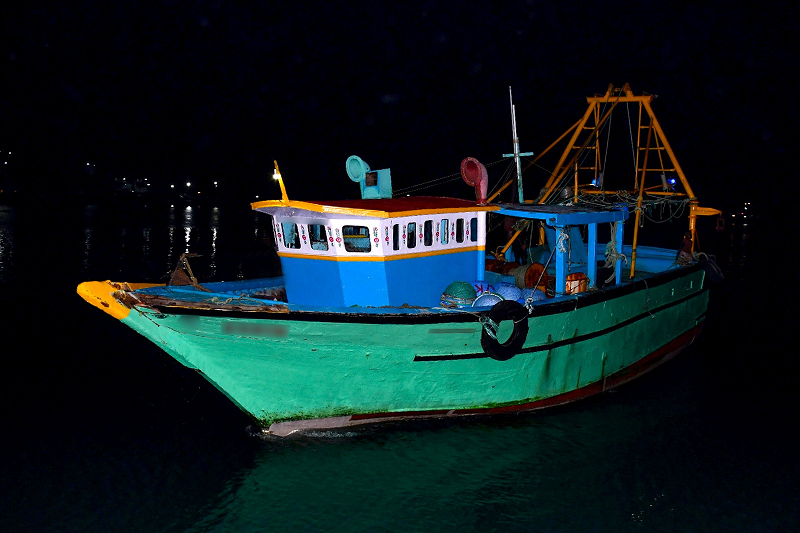
The Sri Lanka Navy seized an Indian fishing boat and apprehended 03 Indian fishermen while they were poaching in Sri Lankan waters, during a special operation conducted in the northern sea area off the Delft Island, Jaffna on the night of 17 Mar 25.
Taking into account the impact of those practices on the livelihood of local fishermen, the Navy continues to conduct regular patrols and operations in Sri Lankan waters to curb illegal fishing practices of foreign fishing boats, trespassing into island waters.
The seized boat and the three Indian fishermen were brought to the KKS Harbour and they will be handed over to the Fisheries Inspector of Mailadi, Jaffna for onward legal proceedings
Latest News
Allen, Seifert and bowlers combine to hand NZ 2-0 lead in rain-shortened contest

New Zealand’s powerful powerplay performances with both ball and bat comfortably dispatched Pakistan in the second T20I in Dunedin to give the hosts a 2-0 lead in the five-match series.
Jacob Duffy, Ben Sears and Ish Sodhi pinned Pakistan early to cripple their batting effort, forcing the visitors to make only 135 in the 15-overs-a-side contest, after which openers Tim Seifert (45 off 22 balls) and Finn Allen (38 from 16) killed the chase off early, adding 66 in just 28 deliveries.
Salman Agha’s 46, and economical spells from Khushdil Shah and Haris Rauf, were the positives from the Pakistan camp. But, overall, they were outplayed by the hosts, although the gulf between the two sides was lesser than in the first T20I. The teams now move to Auckland, with the visitors one defeat away from losing the series.
After New Zealand stand-in captain Michael Bracewell opted to bowl, Duffy’s rising delivery had opener Hasan Nawaz miscuing a shot to backward point in the first over itself. Sears then dismissed an aggressive Mohammad Haris for 11 when he slashed the bowler to deep third.
Agha, Pakistan’s captain, then counterattacked to give the visitors’ innings some impetus, but Bracewell’s introduction of Sodhi crippled them. Irfan Khan’s leading edge off Sodhi saw him holing out at backward point, and two balls later, Khushdil was walking back after being trapped in front of the stumps by the wristspinner.
Agha’s 28-ball 46 threatened New Zealand in the middle overs, but when he fell in the tenth over to Sears in his second spell, Pakistan lost steam. However, Shadab Khan’s 14-ball 26, and Shaheen Shah Afridi’s 14-ball 22, added some late impetus to lift the visitors to 135 for 9 in 15 overs. James Neesham, playing his first T20I in nine months, finished with 2 for 26, both wickets coming in the 13th over.
“The guys bowling into the wind bowled particularly well,” Bracewell said after the game. “I think when the wicket’s been under covers for a day or so and offering extra bounce, our bowlers used the surface well. We were pretty happy with the score at half-time.”
On one of the fastest scoring T20I grounds, a required run rate of nine per over wasn’t daunting. But Afridi’s maiden over to Seifert meant Pakistan started well.
Playing in Dunedin for the first time since his record-breaking innings of 16 sixes against Pakistan in January 2024, Allen kickstarted the chase by launching three sixes off Mohammad Ali’s back-of-a-length deliveries in the second over. Seifert went one better in the third, smashing Afridi for four sixes in the arc between extra cover and deep square leg. With seven sixes in the first three overs – the second-most in that phase of any T20I (where ball-by-ball data is available) – the openers looked in a hurry to finish the game.
Seifert fell in the fifth over even as he looked set for a rapid half-century, as he miscued Ali’s slower ball to mid-on. But his 22-ball 45 had made the chase elementary. Allen then smashed left-arm seamer Jahandad Khan for consecutive sixes in the seventh over before falling lbw next ball. His 16-ball 38 left New Zealand at 88 for 2 in seven overs, needing just another 48 from as many balls.
“After the first over [maiden], thought it was a tricky chase, but then Finn and I combined well,” Seifert, the Player of the Match, who returned to the T20I squad ahead of this series, said after the game. “As a Kiwi, playing for the nation is great, and it’s fun to be back with the boys. You’re playing with the world’s best players, and it helps you to know your game. As a player, you’re definitely learning and getting better.”
The start allowed New Zealand’s middle order to take their time, although Mark Chapman and Neesham fell for single-digit scores. Rauf, playing instead of spinner Abrar Ahmed, picked off Daryll Mitchell and Neesham in quick succession, but Mitchell Hay’s unbeaten 16-ball 21, and Bracewell’s winning boundary, took the hosts home with 11 balls to spare.
“The ground was small, and we wanted to attack their bowlers from one end with the wind,” Bracewell said about the batting performance. “But the openers went big from both ends [smiles]. We’re pretty happy with where things are at overall.”
Pakistan captain Agha said their own powerplay performances were a let-down.
“It was a better game than last game – lot of positives – but few things more to do,” Agha told the broadcasters. “We batted better but we need to finish our batting better. Bowling was decent but we need to be more consistent. We need to understand and adjust to the bounce. After the powerplay, we bowled well. We bowled well in patches, [but[ at the same time, we need to be more consistent in powerplay bowling.”
Brief scores: [15 overs a side]
New Zealand 137 for 5 in 13.1 overs (Tim Seifert 45, Finn Allen 38, Mitchell Hay 21*; Haris Rauf 2-20) beat Pakistan 135 for 9 in 15 over (Salman Agha 46, Shadab Khan 26, Shaheen Shah Afridi 22*; Ish Sodhi 2-17, Jacob Duffy 2-20, Ben Sears 2-23, James Neesham 2-26) by five wickets
[Cricinfo]
Latest News
Rain washes out decider with series between New Zealand Women and Sri Lanka Women ending at 1-1
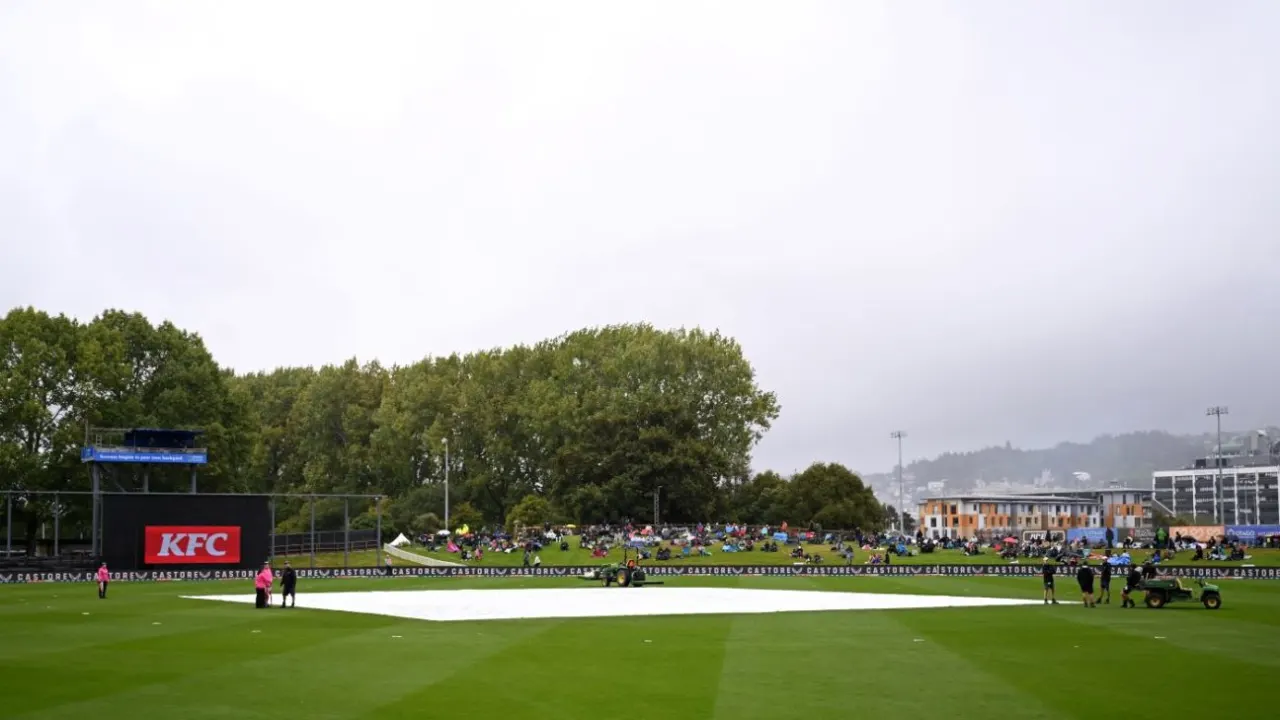
Dunedin rain has washed away hopes of a series result between New Zealand and Sri Lanka after only 14.1 overs were possible in the third T20I on Tuesday.
Several lengthy rain delays ended any hopes of a result after New Zealand had made a bright start with the bat, having been sent in by Chamari Athapaththu.
Suzie Bates and Georgia Plimmer shared a 60-run stand in eight overs before the first rain delay halted play. Shortly after returning Bates fell to Athapaththu for 31 off 28 before rain returned again.
The match was reduced to 15-overs a side thanks to the second delay. Sri Lanka’s bowlers made the most of break, picking up two wickets on return. Plimmer continued her good form striking three boundaries and two sixes to reach 46 not out before rain ended the match.
Athapaththu finished player of the truncated series with scores of 64 not out and 23 and bowling returns of 1-10, 0-19 and 1-19 across the series.
Brief scores:
New Zealand Women 101 for 3 in 14.1 overs (Georgia Plimmer 46*, Suzie Bates 31, Izzy Sharp17*; Inoshi Priyadarshani 1-27, Chamari Athapaththu 1-19, Kavisha Dilhari 1-21) against Sri Lanka Women No result
[Cricinfo]
-
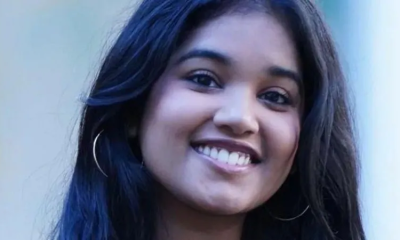
 Foreign News3 days ago
Foreign News3 days agoSearch continues in Dominican Republic for missing student Sudiksha Konanki
-
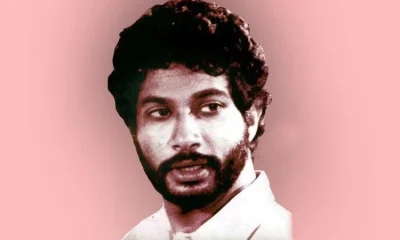
 Features5 days ago
Features5 days agoRichard de Zoysa at 67
-

 News6 days ago
News6 days agoAlfred Duraiappa’s relative killed in Canada shooting
-
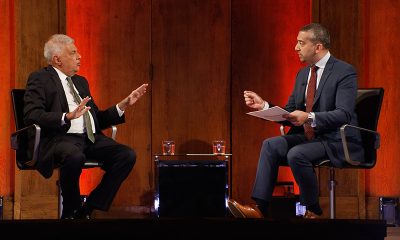
 Midweek Review6 days ago
Midweek Review6 days agoRanil in Head-to-Head controversy
-

 Features2 days ago
Features2 days agoThe Royal-Thomian and its Timeless Charm
-

 Features5 days ago
Features5 days agoSL Navy helping save kidneys
-

 News3 days ago
News3 days agoDPMC unveils brand-new Bajaj three-wheeler
-

 Features2 days ago
Features2 days ago‘Thomia’: Richard Simon’s Masterpiece











